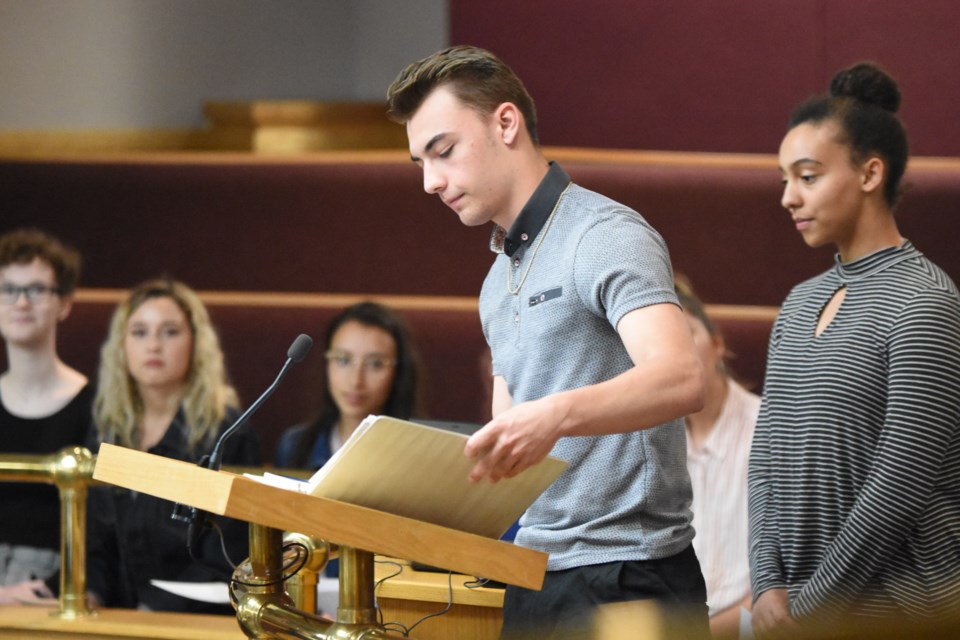A group of youths believes it is important to know the difference among the terms biodegradable, compostable and degradable, since those expressions can have an effect on the environment.
Biodegradable is a term used when describing organic materials that break down in a specific environment, explained Jenna Meili, a member of the municipality’s youth advisory committee and a student at Vanier Collegiate. This term is often misused in marketing and advertising of products and materials that are not actually environmentally friendly.
“Many companies market products as biodegradable because it will break down, but they do not specify how long it will take, which could be thousands of years to fully decompose,” Meili told city council on June 24 during the regular council meeting.
“This means very little, as everything breaks down given enough time.”
Compostable is the process of breaking down organic waste by microbial digestion to create compost, she continued. The main goal of composting is to recycle organic waste so it can eventually be reused. Natural products such as BioBags are compostable.
During its presentation, the youth advisory committee urged city council to ban single-use plastic bags and adopt BioBags as a suitable replacement, which would be less harmful to the environment.
Degradable plastic products, Meili explained, do not fully break down. Instead, they break apart into microscopic pieces that take nearly a millennia to decompose. However, a BioBag takes three to six months to break down into organic material and causes no lasting harm to the environment.
The youth advisory committee decided to pursue these alternative bags since it is clear there is a problem with plastic bags in the community, along with litter in general, said Lucas Dyck, a student from Central Collegiate.
The committee understands it would be inconvenient to eliminate plastic bags without providing a solution, he continued. Therefore, the committee's alternative is to switch to BioBags.
“We must set the precedent for generations to come, because the longer we ignore this problem, the longer it becomes a problem,” Dyck said. “Adopting this as a solution will help make our community a cleaner and greener place.”
The goal is to slowly phase in BioBags into the community; he pointed out the banning of single-use plastic bags is already happening across the country, so Moose Jaw should get a head start.
Plastic bags are becoming more harmful than useful, said Ha’Keena Maneso of Vanier Collegiate. They take up space in the landfill, create waste and, although they can be recycled, are most often seen floating around the community in parks, backyards, and rivers. These plastic bags are also an eyesore when motorists drive past the landfill.
“We come to you today not with a problem, but with a solution,” she said. BioBags act and work similarly to a regular plastic bag, but are compostable and are the perfect replacement.
People are creatures of habit, so taking away plastic bags would be a difficult adjustment for some residents to make, Maneso added. By integrating BioBags into the community, it will seem as if the plastic bags never left and the transition will be easier for everyone.
The next regular council meeting is Monday, July 8.




